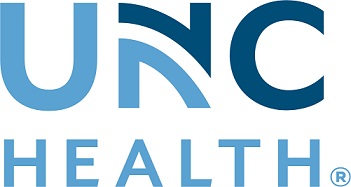Newswise — It's a sad fact of life in our current economic environment. Almost every day, it seems, we see stories in the news about hundreds of people losing their jobs as employers resort to layoffs, companies downsize, businesses go out of business.
"Losing your job is scary enough all by itself," said Dr. Adam Goldstein, a professor of family medicine at the University of North Carolina at Chapel Hill School of Medicine. "But for some people, such as those who have chronic health problems that require both medications and regular visits to the doctor, that fear becomes magnified by the loss of health insurance that often goes hand in hand with the loss of one's job."
More than 45 million Americans had no health insurance in 2007, according to the U.S. Census Bureau. Fortunately, if you find yourself in this situation there are several things you can do to keep getting the health care services that you need, Goldstein said. He offers the following five tips:
Check to see if you qualify to continue your current health insurance under COBRA (Consolidated Omnibus Budget Reconciliation Act). COBRA is a federal law that gives workers and their families who lose their health benefits the right to choose to continue group health benefits for limited periods of time after job loss. Qualified individuals still must pay the entire premium for coverage to continue. For more information about COBRA, see http://www.dol.gov/ebsa/faqs/faq_consumer_cobra.HTML.
Call your primary care doctor and explain your situation. Most physicians will work with you to ensure that you still have access to care while you work out a way to pay your medical bills. They may have a sliding scale policy to allow those with less financial resources to pay less at each visit. At UNC Family Medicine, for example, options include payment plans, a discount for self-pay patients, and a charity care program. A financial counselor can explain these options and determine which programs may assist you. See http://www.med.unc.edu/fammed.
Seek care at a community health center or free medical clinic whose mission is to serve patients, regardless of their ability to pay. One example is the clinic run by the Student Health Action Coalition at UNC. See http://www.med.unc.edu/shac/. You can also use the free clinic system and/or visit your local health department. In North Carolina alone, more than 60 free clinics provide care to those who cannot afford to pay for it. The North Carolina Association of Free Clinics lists these at http://www.ncfreeclinics.org/. There are similar free clinic associations in many other states. There are also federally-supported Community Health Centers that provide a range of primary care services to people -- including the uninsured or under-insured -- on a sliding scale fee basis. These are located in communities where providers are few or scarce. To find a health center near you, or to learn more about health centers, visit www.nachc.com.
Try to get your medications at reduced or no cost. Prices in pharmacies may vary widely, with the most expensive charging two to five times more than the least expensive. Shop around. Many pharmaceutical companies offer medications for free for a limited time to patients with no income and few financial assets. The Partnership for Prescription Assistance offers access to more than 450 public and private patient assistance programs, including more than 180 programs offered by pharmaceutical companies. See https://www.pparx.org/Intro.php.
Focus on the things you can do on your own to stay healthy. This includes exercising regularly, avoiding tobacco, eating fresh vegetables and fruits, avoiding excessive salt and avoiding high cholesterol foods. You can also get your blood pressure checked for free in most drug stores, and you can get free flu shots at many locations.
Hear Dr. Adam Goldstein discuss these tips at: http://interweb.unch.unc.edu/media/goldstein.mp3
